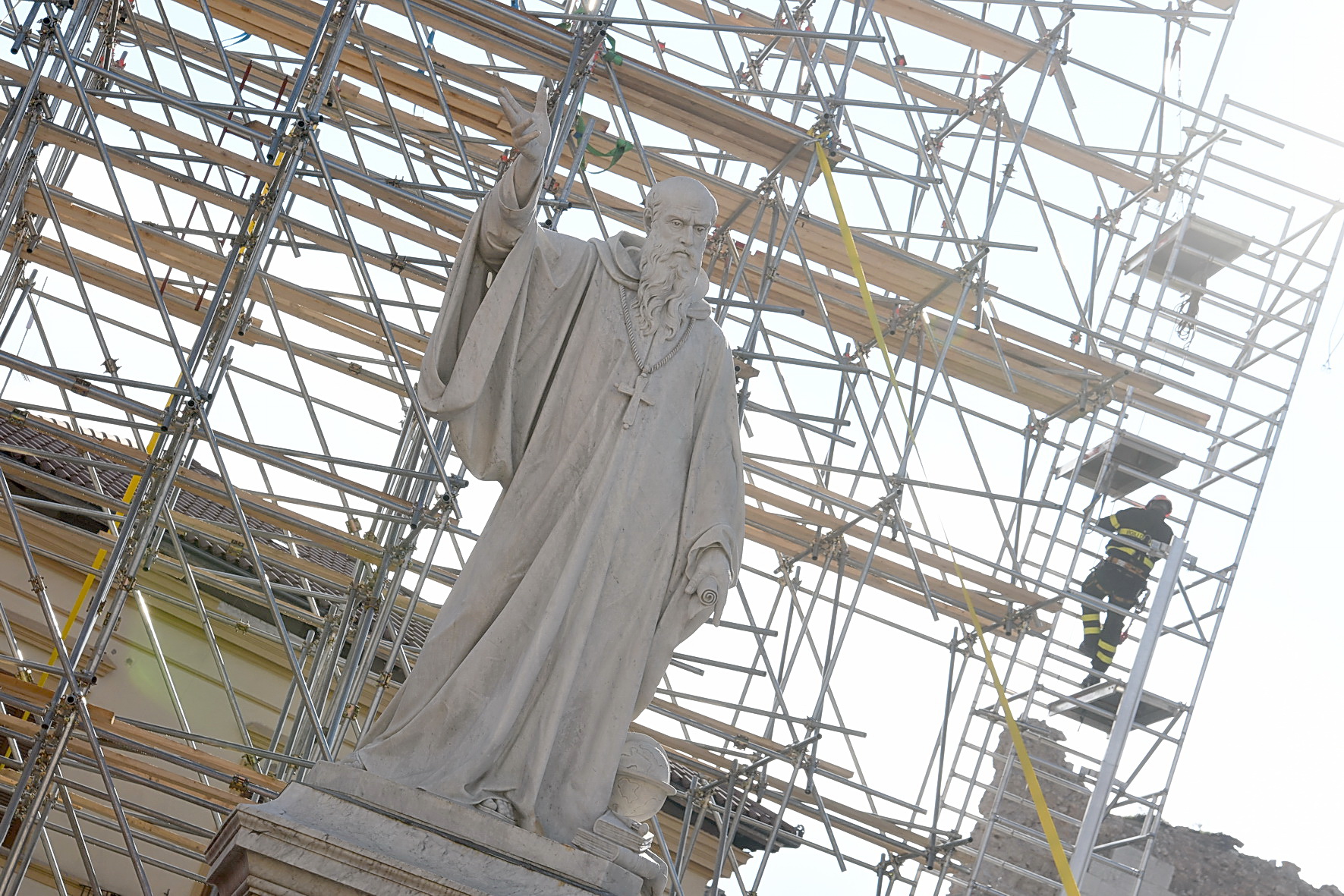Editorial
In the 20th century, European Countries contaminated by the germs of nationalism waged war against each other. How much suffering and how many lives were lost! Today we are living a new season. The culture of living for oneself leads to national and local selfishness, to the lack of vision. However, inasmuch as man lives for himself he starts to die; Countries die out, so do communities and nations. Thus Europe risks bidding farewell to History. But the world needs Europe. It needs its humanism, its reasonable strength, is mediation and dialogue skills, its resources, its economic independence, its culture

In the Apostolic letter Pacis nuntius, by which Saint Benedict is proclaimed Patron Saint of Europe, Paul VI defined him a messenger of peace, an accomplisher of unity, a master of civilization. The question is: which is the path that leads to the accomplishment of this civilization? The experience of Benedict has been one of a community of true believers, which originated a flow of humanity: “Find inner peace and thousands will find it near you”, said Saint Seraphim of Sarov.
Card. Joseph Ratzinger said in Subiaco: “We need men like Benedict of Nursia, who at a time of dissipation and decadence plunged into the most profound solitude, succeeding, after all the purifications he had to suffer, to ascend again to the light, to return and to found” a community in Montecassino, “the city on the mountain that, with so many ruins, gathered together the forces from which a new world was formed.
In this way Benedict, like Abraham, became the father of many nations” (April 1st 2005).
The Saint of Nursia has cemented in Europe that very spiritual unity that led peoples divided by language, ethnicity, and culture, to feel the yearning to come together as one people. The years that followed the fall of the Berlin Wall pursued the path of globalization, of virtual, cultural, financial and economic unification in which we operate today.
But globalization was disharmonious with regard to a process of spiritual closeness. A human and spiritual distance still separates peoples, despite their having been brought closer (and confused) by the new situation. Europe has lost – and on some occasions it denied – its own roots. Roots are not an archaeological matter, a return to the past, a wall to protect ourselves. Roots shape men, women, communities, grounded in authenticity. Yet Europe’s major temptation is to close itself to a world that is probably considered too big and invasive.
The Christian faith urges us not to live for ourselves. The Apostle Paul writes: Christ “died for all, that those who live should no longer live for themselves but for him who died for them and was raised again” (2Cor 5:15). The reference to the Gospel, brought by the Apostle Paul from Greece to Rome, rooted by the disciples of Benedict in many parts of Europe, questions – and judges – the “culture of living for ourselves”, into which our Continent appears to be plunging ever more deeply.
The perspective cannot be confined to economic expansion. Living only for oneself is the result of a purely commercial dynamics. Practical materialism, after the Marxist materialism, prevails over a large portion of European culture; market-oriented thought devours sections of self-giving in social life. We are thus witnessing the crisis of communities – at family and local level alike -. Also the fair pursuit of personal interests requires generosity and spirit.
In the 20th century European Countries, contaminated by the germs of nationalism, waged war against each other. How much suffering and how many lives were lost! Today we are living a new season. The culture of living for oneself leads to national and local selfishness, to the lack of vision. However, inasmuch as man lives for himself he starts to die; Countries die out, so do communities and nations. Thus Europe risks bidding farewell to History.
But
the world needs Europe. It needs its humanism, its reasonable strength, is mediation and dialogue skills, its resources, its economic independence, its culture.
Inasmuch as it is a viaticum for our Continent, the exhortation of Saint Benedict preserves an ever-present topical relevance: “Relieve the lot of the poor, visit the sick, help the troubled, console the sorrowing, the love of Christ must come before all else. Live by God’s commandments every day, treasure chastity, do not harbour hatred of anyone, do nothing out of envy, do not love quarrelling, shun arrogance, pray for your enemies out of love for Christ, if you have a dispute with someone, make peace with him before the sun goes down. And finally, never lose hope in God’s mercy.” (Rule IV, passim).
(*)archbishop of Spoleto-Nursia – President of the Umbrian Episcopal Conference